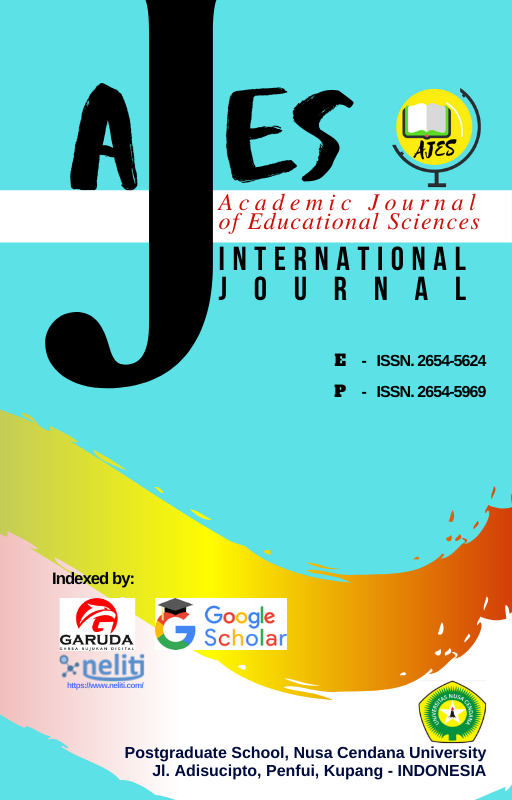ECOLINGUISTICS-BASED PEDAGOGY FOR YOUNG LEARNERS: Eco-Teaching Practices in Nunleu, Kupang City-Indonesia
Abstract
This study explores the implementation of the eco-teaching approach in English language education
within the Kali Sembunyi learning community, located in Nunleu subdistrict, Kota Raja, Kupang City.
The target group consists of children aged 6–10 years living near a local river basin. Eco-teaching
integrates ecolinguistic principles (Halliday & Mühlhäusler) and meaningful learning theory by utilizing
environmental objects as direct teaching media. The learning process emphasizes interactive and
joyful activities grounded in the children’s ecological context.
Using a descriptive qualitative method, data were collected through observation, interviews, and
documentation. The results indicate that children acquired English vocabulary more effectively when
learning was contextual and grounded in their surroundings, compared to traditional methods
involving translation and rote memorization. Engaging with real-world materials such as stones, leaves,
and water fostered deeper cognitive and emotional involvement, making language acquisition more
meaningful. These findings support the view that language should be taught in connection with
ecological contexts to cultivate both linguistic competence and environmental awareness.
This study recommends implementing eco-teaching across all age levels in foreign language education,
particularly in community-based learning settings. Integrating language instruction with local
ecosystems not only enhances retention and understanding but also nurtures ecological sensitivity
among learners.

 Dias P ora Tualaka(1)
Dias P ora Tualaka(1)







